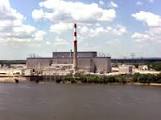Illinois Nuke Rescue Package is Alive but Sketchy
When Exelon earlier this year shocked the nuclear industry by declaring it would close its money-losing Clinton and Quad Cities plants in Illinois, the Chicago-based generating giant said it could change its mind if the state legislature would come up with a financial rescue package. That may happen, but the odds are against it.

The company hoped the deal would look something like the plan New York Gov. Andrew Cuomo concocted to save three uneconomic Exelon units in upstate New York. The Cuomo plan looks like it will happen. At the time, the Illinois legislature refused to take up Exelon’s rescue package. It looked like the issue was a dead letter in Illinois.
But Exelon CEO Chris Crane told me this summer that his company wasn’t giving up on action by the Republican-controlled Illinois legislature. He explained that the nuke rescue package didn’t rise to a priority in the legislature, as the solons were enmeshed in a nasty, long-running partisan battle over a budget for the state government, which was into a second year without an agreed-upon spending plan.
After coming up with a short-term cobbled-together budget compromise, the legislature is heading into a post-budget session this fall. Some pro-nuclear Republican state legislators, along with some Democrats, are raising the possibility of a revived nuclear rescue plan. The Quad Cities Times reported that a quartet of state legislators, including three Republicans and a Democrat, recently toured the Quad Cities nuclear plant, one of the stations facing closure. The newspaper reported that “talks still are ongoing on a long-term energy bill, officials said there are some glimmers of hope.” Reporters were not allowed to accompany the legislators on their tour of the plant.
As for the Clinton plant, the Daily Pantagraph reported that Republican state rep. Bill Mitchell said, “A lot of people are still working on it, including Exelon, Gov. (Bruce) Rauner, and the General Assembly.”
Officials in the town of Clinton, home of the plant, were skeptical of the political optimism. City administrator Tim Followell told the newspaper, “I haven’t heard anything.” The newspaper commented “that no news means the company, which already has notified the Nuclear Regulatory Commission of its closure plans, is moving toward the planned June 1, 2017, decommissioning and time to reverse the decision is running out.”
“The Legislature meets for a few days in November,” Exelon spokesman Brett Nauman told the Pantagraph. “Hopefully, they could act before the end of the year and Exelon could potentially reverse the decision. But as of now, we have to move forward with plans to close.”
Clinton is a single-unit, 1098-MW General Electric boiling water reactor that went into service in 1987 (at $4.9 billion in 1987, way over the initial estimate of $430 million and seven years behind schedule). Quad Cities is a two unit (930-MW each) GE BWR in Cordova, Ill., which went into service in 1973, one of the earliest nuclear plants in the U.S. and a consistent good performer.
The odds are slim for a legislative bailout, according to many analysts of Illinois politics. But slim is still in the room and it isn’t clear whether he is moving quickly toward the egress or milling around the lobby.